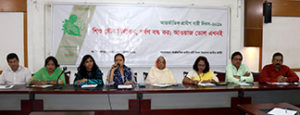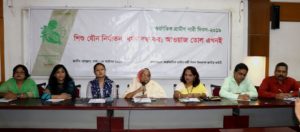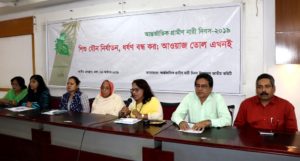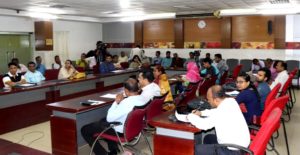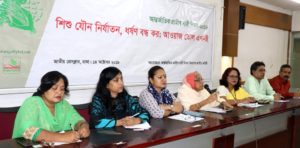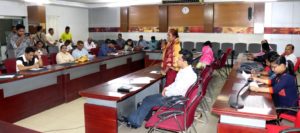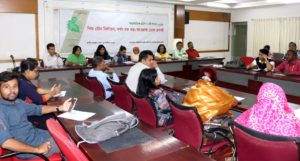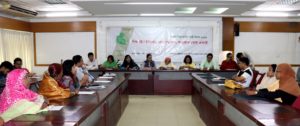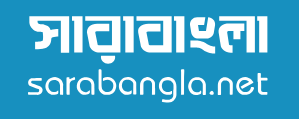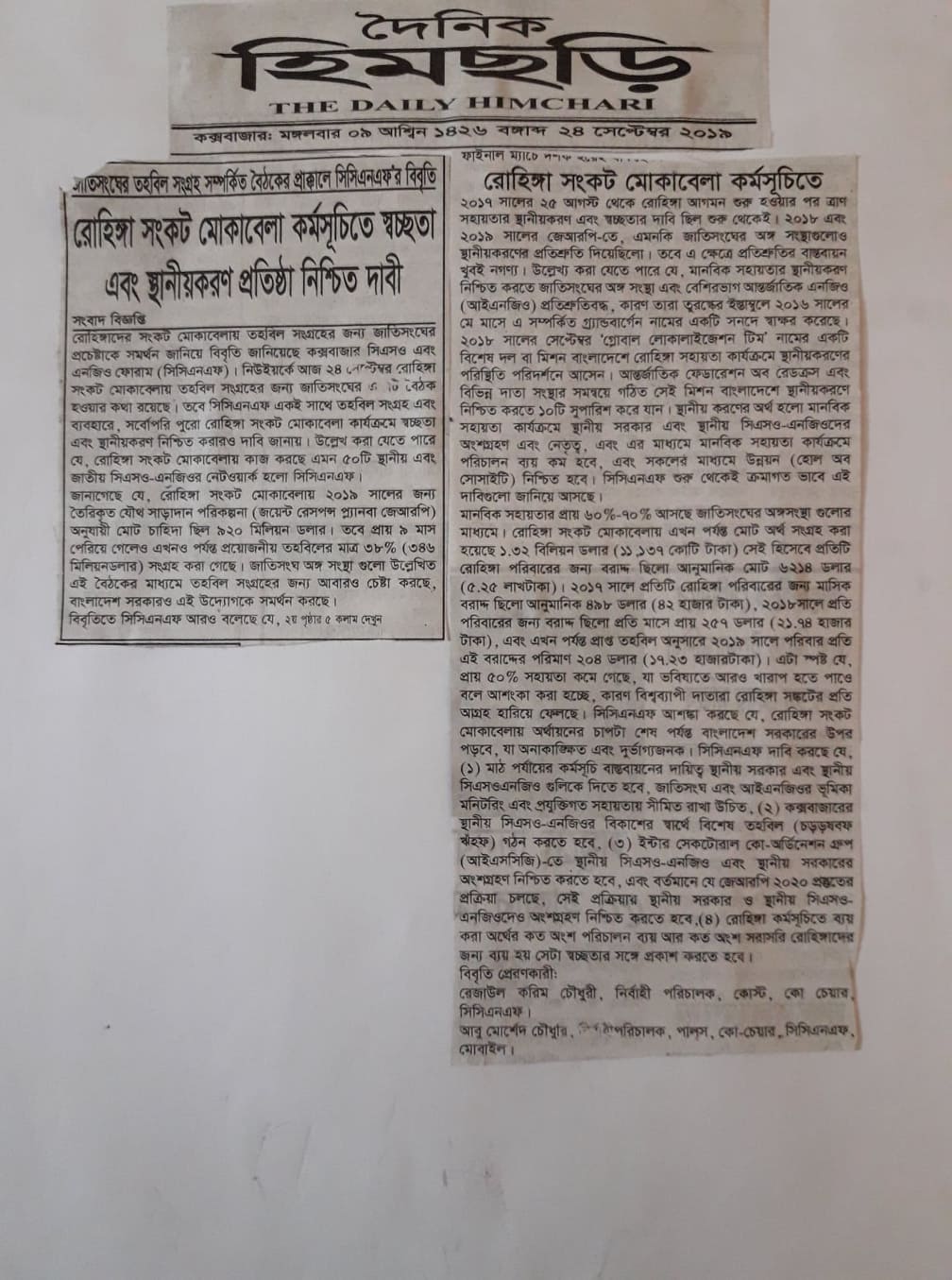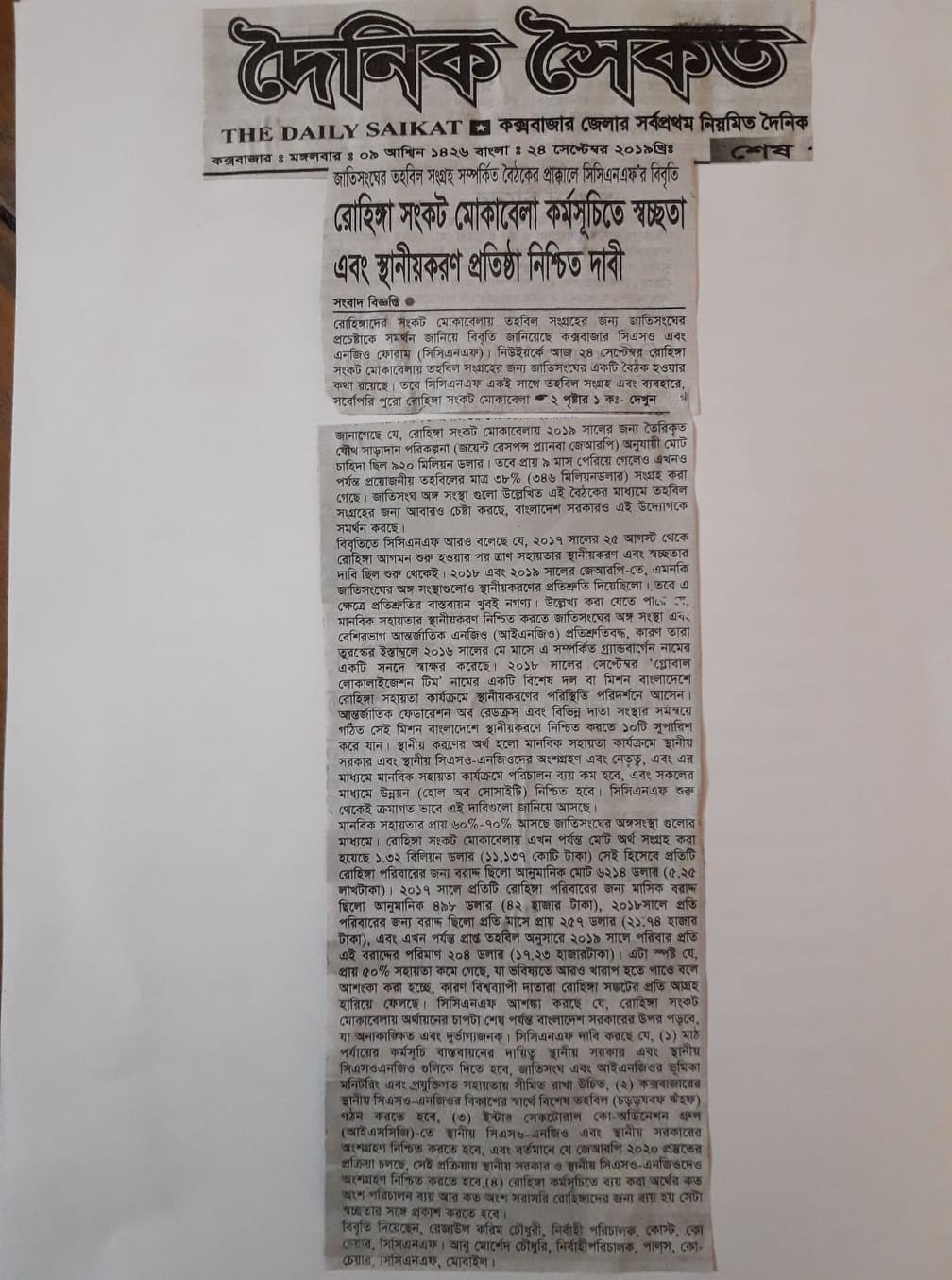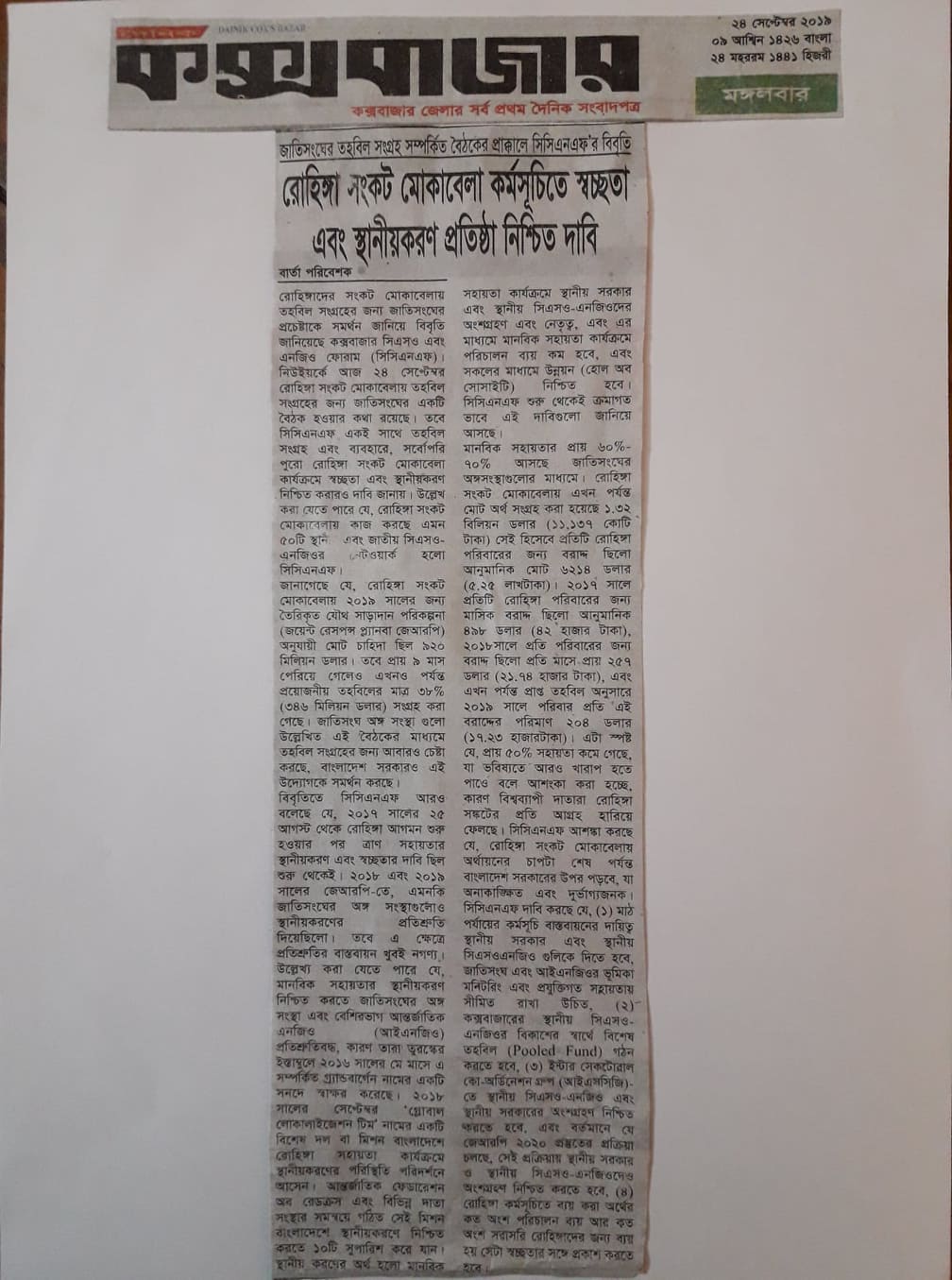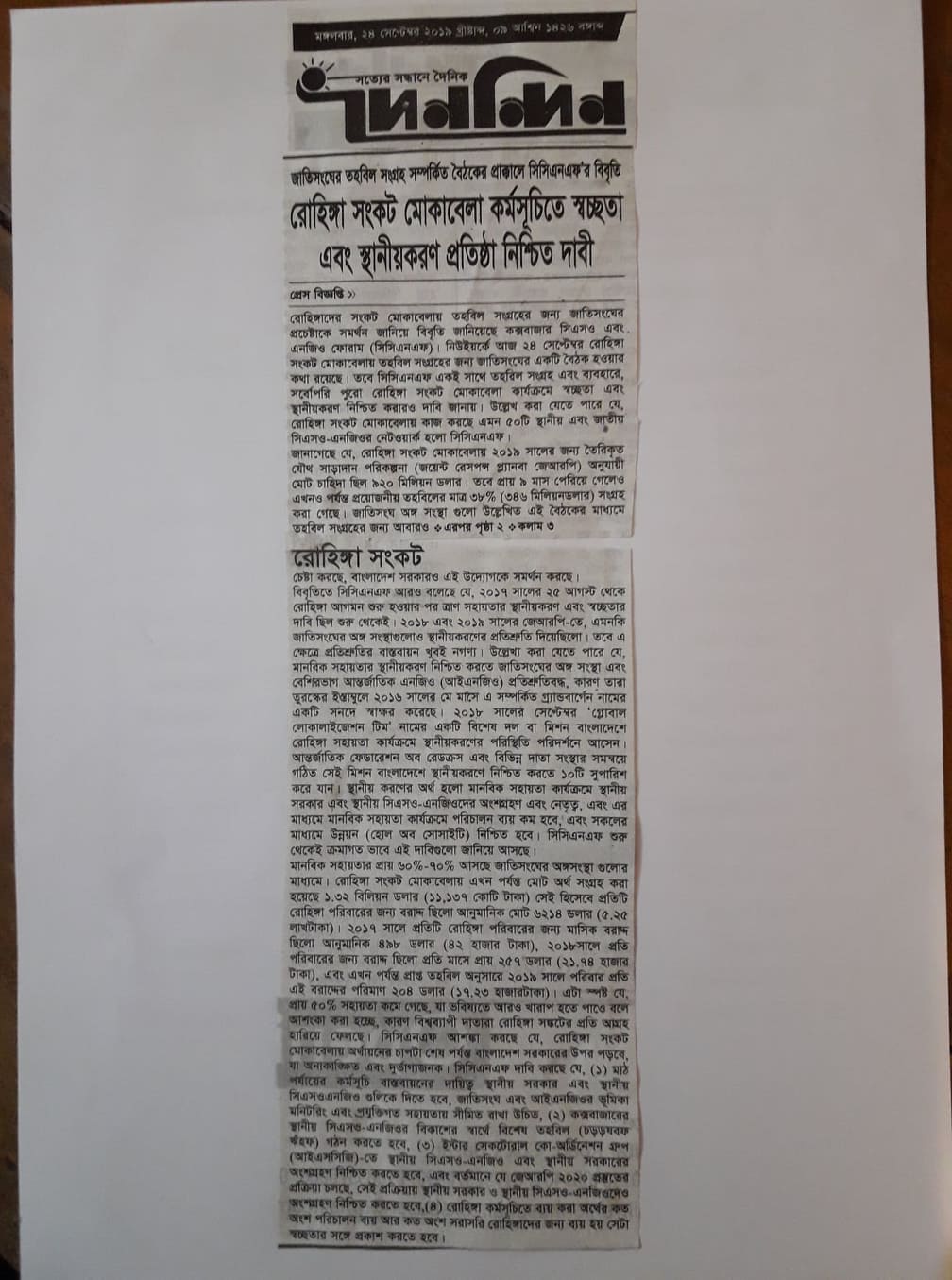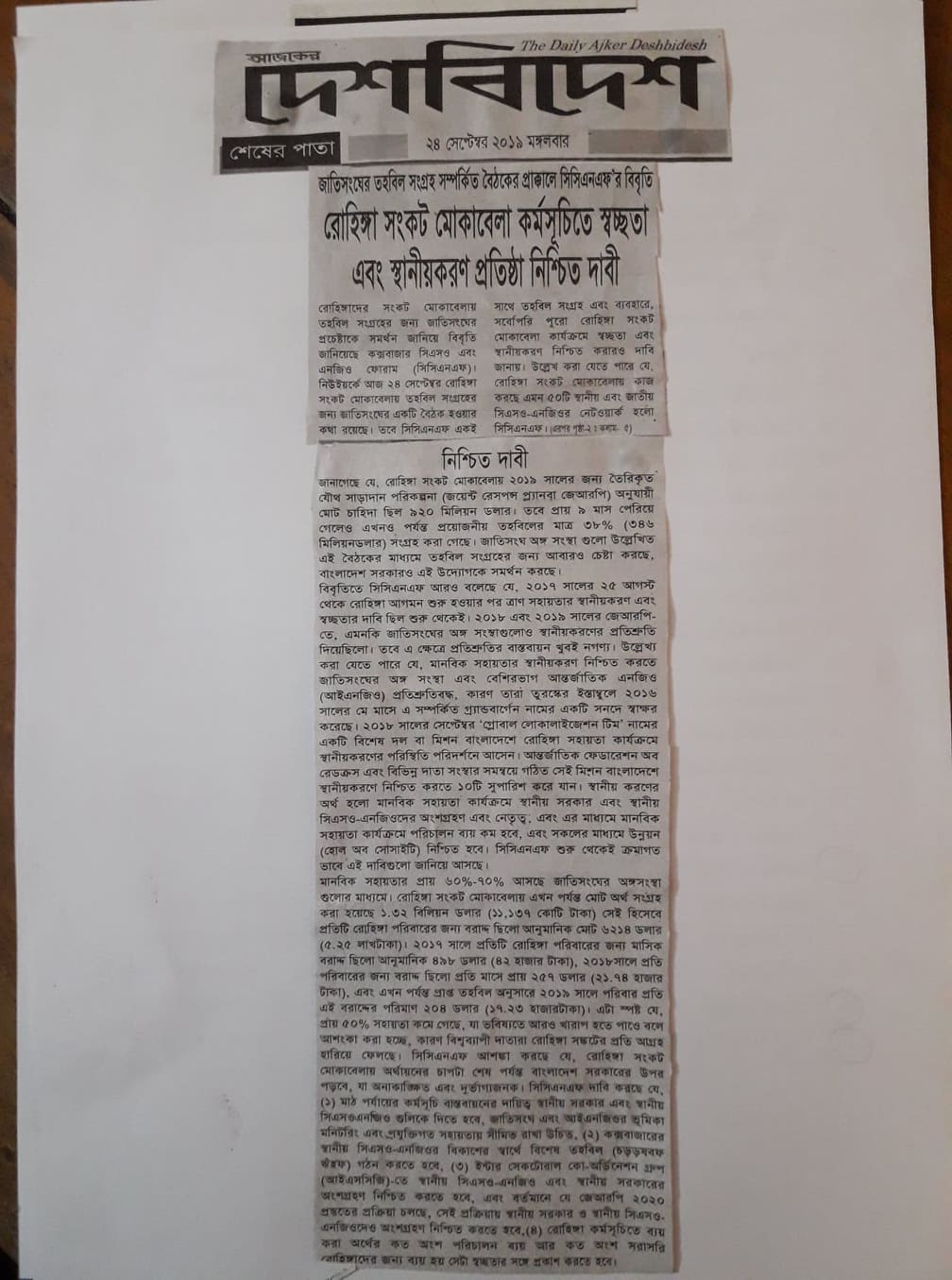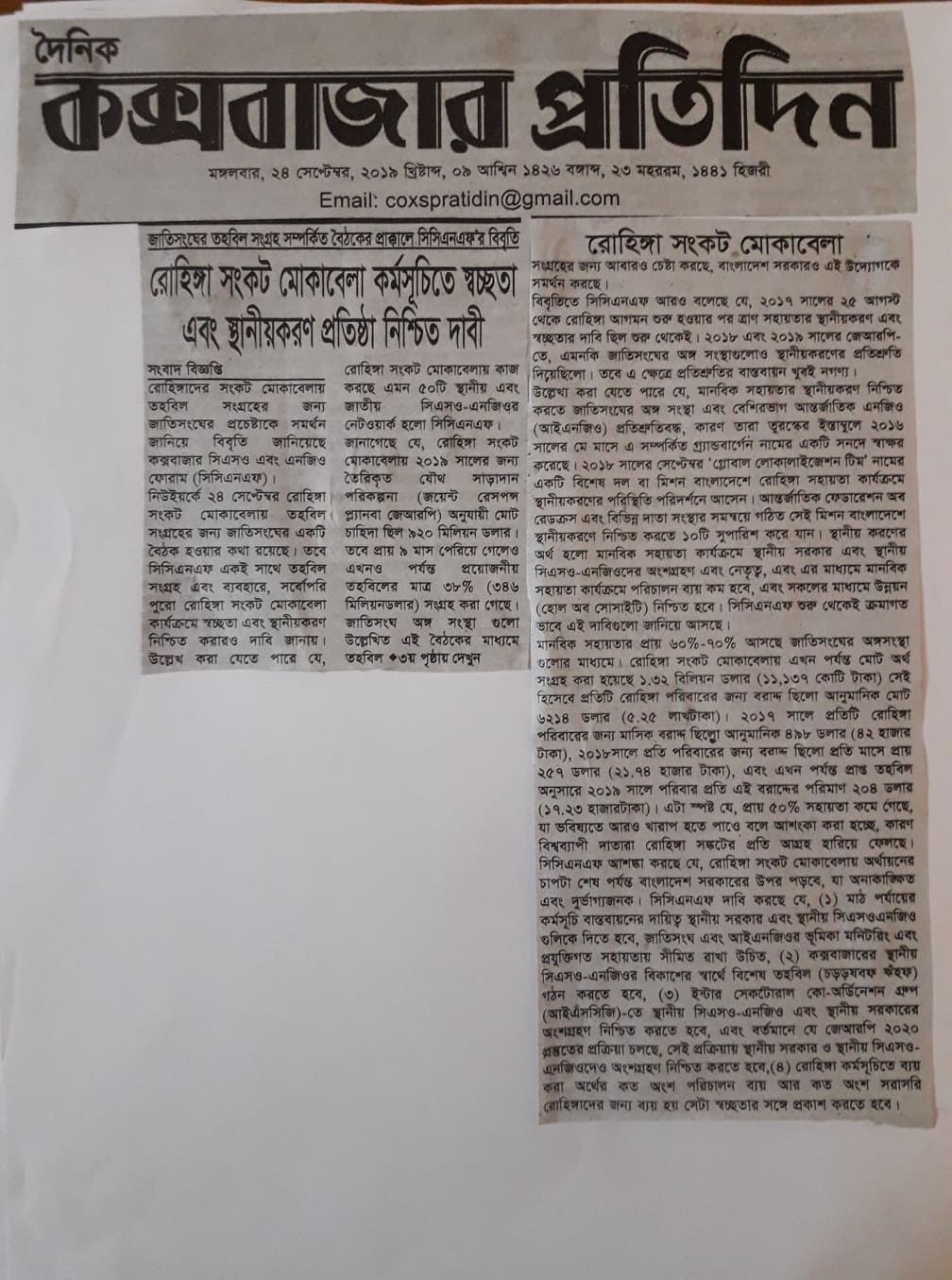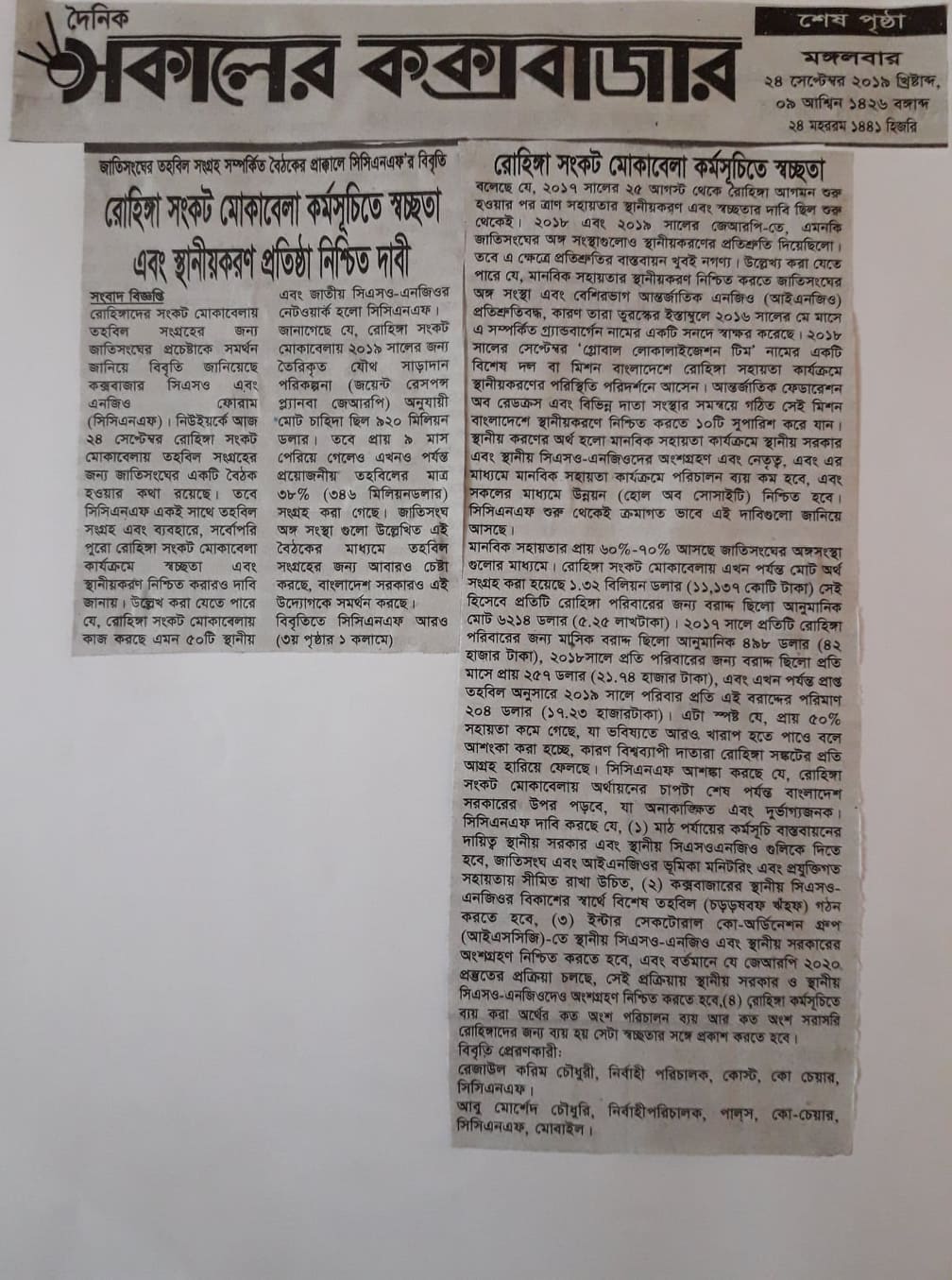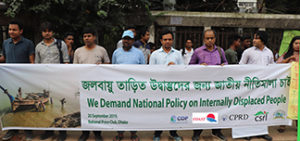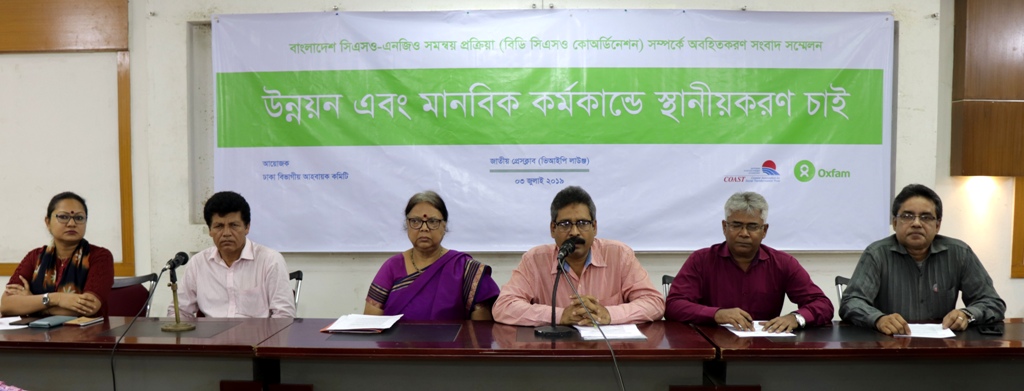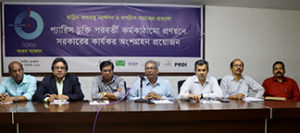 Dhaka, 26 November 2019, in a press conference today, Civil Society Organizations (CSO) on climate advocacy networks have demanded for a separate Mechanism for Displacement & Migration under UNFCCC (United Nation Framework Convention on Climate Change) process, observing frustrated performance of WIM (Warsaw International Mechanism) on Loss & Damage and Displacement issues. They also recommended government for an effective role on above issue, along with raising their voice to ensure easier financial access to GCF as MVC (Most Vulnerable Country). CSOs made these demands towards upcoming CoP 25 Climate Conference, being held in Madrid, Spain from 02-13 December 2019.
Dhaka, 26 November 2019, in a press conference today, Civil Society Organizations (CSO) on climate advocacy networks have demanded for a separate Mechanism for Displacement & Migration under UNFCCC (United Nation Framework Convention on Climate Change) process, observing frustrated performance of WIM (Warsaw International Mechanism) on Loss & Damage and Displacement issues. They also recommended government for an effective role on above issue, along with raising their voice to ensure easier financial access to GCF as MVC (Most Vulnerable Country). CSOs made these demands towards upcoming CoP 25 Climate Conference, being held in Madrid, Spain from 02-13 December 2019.
The press conference titled “Madrid Climate Conference and CSO Expectations” is moderated by Md. Ziaul Hoque Mukta from CSRL (Center for Sustainable Rural Livelihood) and key demand presented by Syed Aminul Hoque from EquityBD. Md. Mostafa kamal Akand from COAST Trust, Md. Shamsuddoha from CPRD (Center for Participatory Research & Development), Mr. Kawser Rahman of BCJF (Bangladesh Climate Journalist Forum) and Md. Badrul Alam from Krishak Federation and Mr. Atiqur Rahaman Tipu from Coastal Development Partnership spoke in the event.
In the key note presentation, Aminul Hoque said that the CoP 25 climate conference very important for our government, because an implementing guideline especially “Article 06 of Paris Agreement (PA)” is going to framing that will be followed by all countries in their NDC (National Determined Contribution) compliance on market based mitigation action. Apart the issue of WIM and “Loss & Damage” will also review for next mandate of work which is very prospective for Bangladesh saving country interest as climate vulnerable country.
Following the context, he made four demands, those are; i. Developed countries must increase their Mitigation action target based on latest IPCC report on reducing global warming, ii. The framework on implementing market based mechanism on “Mitigation Outcome International Transfer” (Article 6 of PA) must be develop under UNFCCC Process and followed by accountability, Transparency principle, iii Ensure easier access to GCF (Green Climate Fund) for most vulnerable countries without any condition and co-financing and v. Review the WIM and develop separate work stream on Displacement and Migration issues to make it fully operationalize in view of real support to vulnerable countries. Apart, a few opinion and recommendation also made by CSO representatives in the press conference;
Kawser Rahaman said, government preparation is yet to visualize and no discourse found with CSO and other stakeholders as well. He urged govt. to ensure more inclusion civil society representatives like before to strengthen country position in both inside and outside of the climate conference. This is very important in the current context as MVC interest need to save.
Md. Shamsuddoha said that GCF has been changing their rule & process frequently bypassing their funding principle which is problem for MVCs. Now access to GCF is very complicated and we off course take position on this issue in CoP 25.
Please download [Bangla Press] [English Press] [Position Paper]
Photos
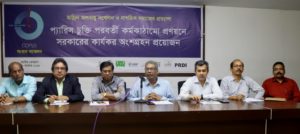 |
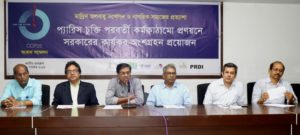 |
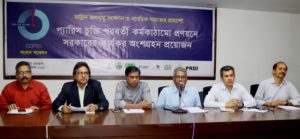 |
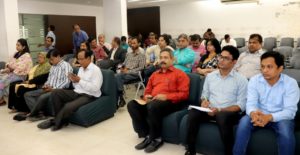 |
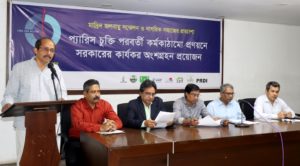 |
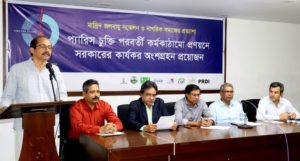 |
Newslink
 |
|
 |
 |
 |
 |
 |
 |
 |
 |
 |
 |


















